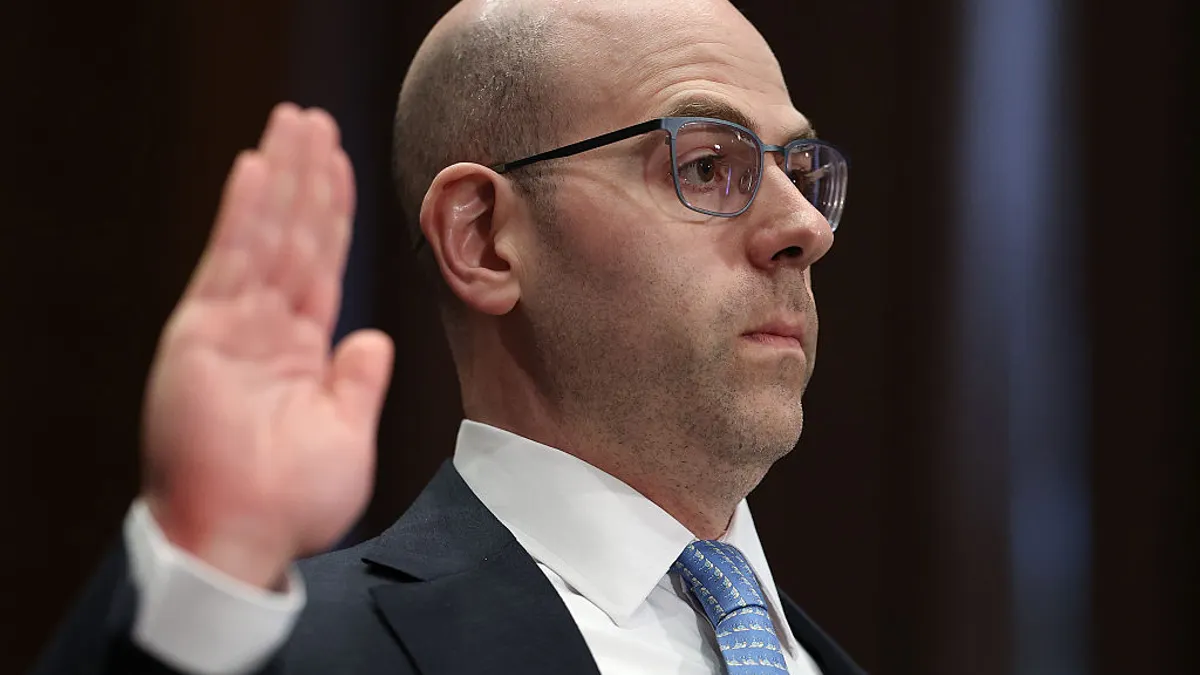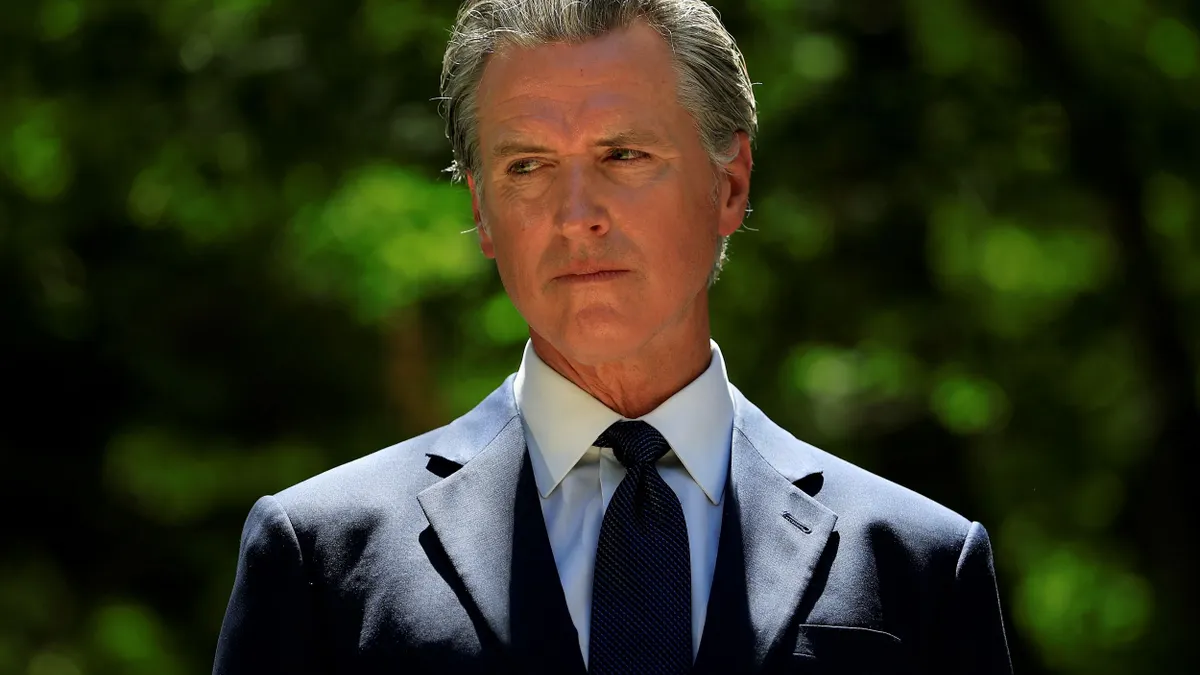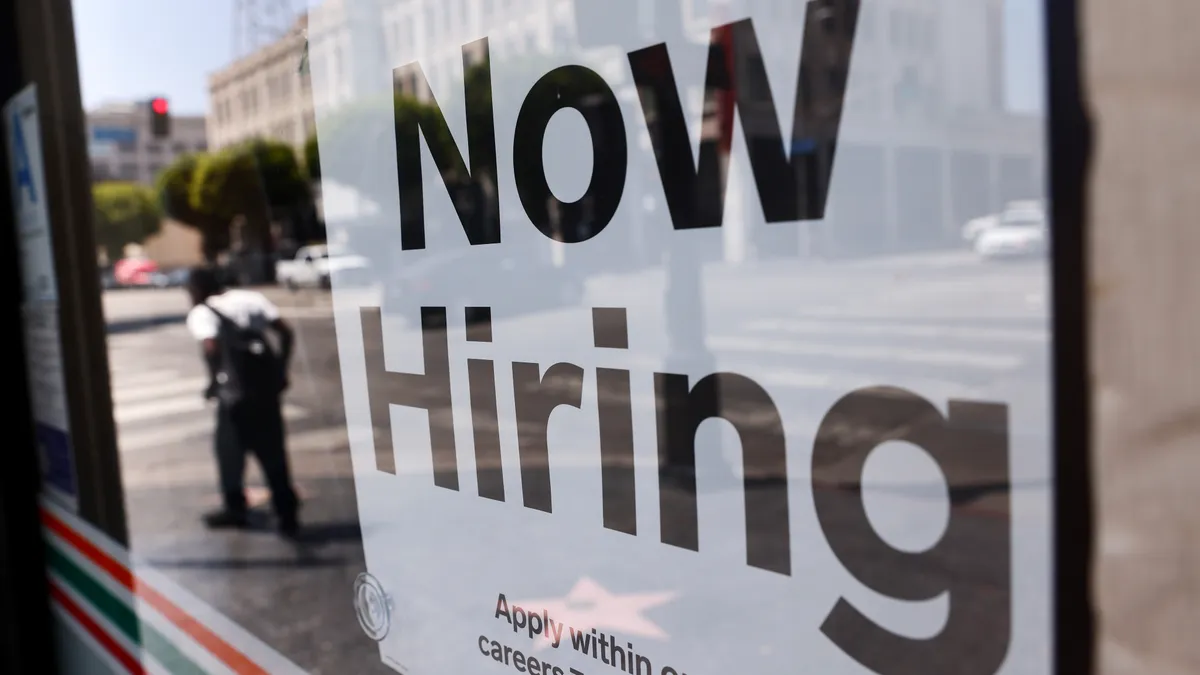When the 52-year-old CFO of Bed Bath & Beyond took his own life in New York City on the Friday before Labor Day weekend this year, his death sent shockwaves across Wall Street and beyond.
The gut-wrenching news broke open new conversations about rising economic pressures challenging the mental health of even the most battle-tested finance leaders — and what corporate America can do to ease the stress.
Just days before he died, Gustavo Arnal, along with other senior executives from the Union, N.J.-based home-goods retailer, had handled a public conference call with analysts and investors in which they provided an update on the company’s turnaround plans. In it, they detailed a strategy that entailed painful steps such as closing stores and laying off workers. Those measures may have overshadowed the hopeful news of more than $500 million in new financing commitments from lenders.
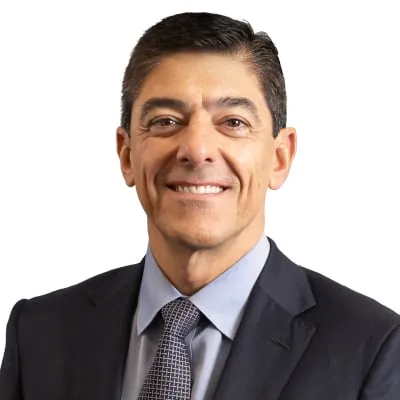
“The decision to close stores and reduce headcount is a difficult one,” Arnal said on a recording of the Aug. 31 audio webcast. “However, these steps reflect changes in strategy and will allow us to focus our resources on the areas of the business that offer the highest return as we drive toward sustainable long-term profitable growth.”
To be sure, it’s often difficult for outsiders to fully understand why a person would take their own life. But Arnal had recently been said to be stressed and working 18-hour days amid the intensifying crisis at Bed Bath & Beyond and company officials planned to consider the possibility of him taking a break after the holiday, according to a Sept. 8 Wall Street Journal report.
He also was said to be stressed by attention from people and some media outlets that he thought misinterpreted a stock sale he made in August because they didn't acknowledge that it had been prearranged in April, the report stated.
A company spokesperson in September confirmed in an email to CFO Dive that Arnal’s stock transactions were part of a preset plan set up in April without “specific knowledge of the market at the time of the trades.” Bed Bath & Beyond did not respond to more recent requests for comment on any steps the company might have been taking to help Arnal prior to his death or the Wall Street Journal report on the matter.
Not invincible
In the wake of his passing, memories and tributes have poured onto social media from friends as well as colleagues who had worked with him throughout his finance career at Avon, Walgreens, Boots Alliance and Procter & Gamble as well as Bed Bath & Beyond. They recalled a brilliant man with a “hilarious” sense of humor wasn’t above stopping into a colleague’s office for candy and some conversation.
A common thread that emerged from a number of the messages of grief were statements of concern about the need for addressing mental health issues in the workplace. In one LinkedIn post, a former Procter & Gamble executive recalled a generous and loyal friend who was “a hero to all our children and a godfather to many.” But he also pointed out that even a “top of the crop” manager such as Arnal has limits.
“We are all expected to cope….with the pressure, with the stress, with depression, with mental strain. That’s also why they pay us the big bucks right?” wrote Adil Mehboob-Khan, CEO of Liberty, a luxury retailer. “Gustavo, resilient and superhuman and talented as he was, was not invincible.”
Antennas up
It’s natural for a suicide to leave an “incredible shockwake of guilt” that runs right through the entire community of the deceased person’s friends, family and co-workers, according to Erik Thompson, a psychologist and founder of Burlington, Vermont-based Thompson Leadership Development, an executive coaching firm. It’s also likely that members of the extended CFO business community could be on alert. There is “a tendency toward anxious vigilance, worry that it will happen again,” Thompson said.
There are signs that it has raised awareness in C-suites and boardrooms more broadly. Keith Meyer, global leader of the CEO and board practice at the Hanover, Md.-based executive search firm Allegis Partners, thinks Arnal’s death recently prompted one company’s board member to take an unusual step.
A member of the company’s audit committee told Meyer that his board grew concerned after a CFO appeared “agitated” during a meeting. They then asked the CEO to check on the finance chief, Meyer said. He declined to identify the company. “The antennas are up,” Meyer said in an interview. “Now, the next question is, how are we going to address this?”
Scorekeepers
Effectively the company’s official scorekeeper, CFOs are charged with delivering financial reports, managing the company’s present-day capital structure and providing financial road maps or models to chart where it is headed.
The pressure on a CFO rises when the company’s reported numbers are flashing red, executive search firm experts say.
“It’s just a really, really difficult job in a downturn,” said Josh Crist, co-managing partner at Crist Kolder Associates, a Downers Grove, Ill.-based executive search firm. “Sometimes things aren’t OK, but everyone's looking at the CFO for guidance when it comes to the health of the company…That’s extraordinarily stressful.”
The list of headwinds that CFOs have been facing has been growing since early 2022. A potent mix of persistent pandemic challenges, supply chain snarls, the war in Ukraine, inflation, currency volatility, staffing shortages and higher interest rates have damped profits and steadily piled up.

CFO turnover
Those stressors are at least partly behind an uptick in the rate of CFOs leaving their jobs, executive search expert Crist said. The percentage of S&P 500 Index companies with CFO turnover rose to 18% last year from 15% a year earlier, and 14% in 2019, according to a report from Russell Reynolds Associates. In just the latest flurry, Nordstrom, Baker Hughes and Beyond Meat announced CFO departures.
Crist does not believe such turnovers have peaked yet. He knows mental health issues are behind a number of the resignations because of private conversations he’s had with some of the players. While CFOs may say publicly that they’re resigning to spend more time with the family or to pursue other interests, Crist said many are privately struggling.
”There are battle scars that you get when you go through some of these really tough periods and they don’t just go away,” he said. “These folks who have been doing this now for two, two and a half years and getting companies through a pretty dark time are saying ‘I’m done, and I’m done because I can’t mentally take it anymore.’”
Emotional intelligence
In recent decades, the need for mental health care has become less stigmatized and more openly acknowledged in U.S. culture.
It’s helped that high-profile celebrities have spoken out about it. Singer-performer Lady Gaga has talked about her struggles with post-traumatic stress disorder and comedian Pete Davidson has been open about his depression.
In the professional golf world, a clinical psychiatrist has worked with pros to help them manage stress and other issues on tour, Golf Digest reported last year, suggesting pro golf is headed toward a “mental health reckoning.”
But mental health care for CFOs, and other senior executives in corporate America, is still at least partly in the shadows, experts say. When it comes to top leaders, it’s not clear how or when the board, human resources or other senior executives should step in to help someone in distress, Meyer said. Concern about rules related to Health Insurance Portability and Accountability Act (HIPAA) might hold back assistance, he said.
CFOs may also share a personality type that leaves them isolated. “The CFOs I have met have had tremendous integrity and incredibly complex thinking skills,” Thompson, the psychologist, said. At the same time, while it’s not always the case, these professionals can tend to be introverted and sometimes socially anxious, he said.
Although it’s dangerous to generalize, he said some professionals who are gifted with numbers can be less developed when it comes to what is sometimes known as their emotional intelligence or emotional quotient (EQ). EQ generally refers to a person’s ability to work effectively with emotions, and those people with higher EQ tend to have more satisfying work and professional relationships, according to a 2020 WebMD article by Seth J. Gillihan, a clinical psychologist. Thankfully, for those to whom EQ does not come naturally, it’s something that can be learned, Thompson said.
A new framework
Public support for improved stress management at work appears to be growing. On Thursday U.S. Surgeon General Dr. Vivek Murthy released a new framework for mental health and well-being in the workplace which outlined a number of ways companies can help create a healthy work culture. It advises organizations to enable adequate rest, make flexible schedules, respect boundaries between work and non-work time, and normalize and support mental health by modeling and regularly promoting services.
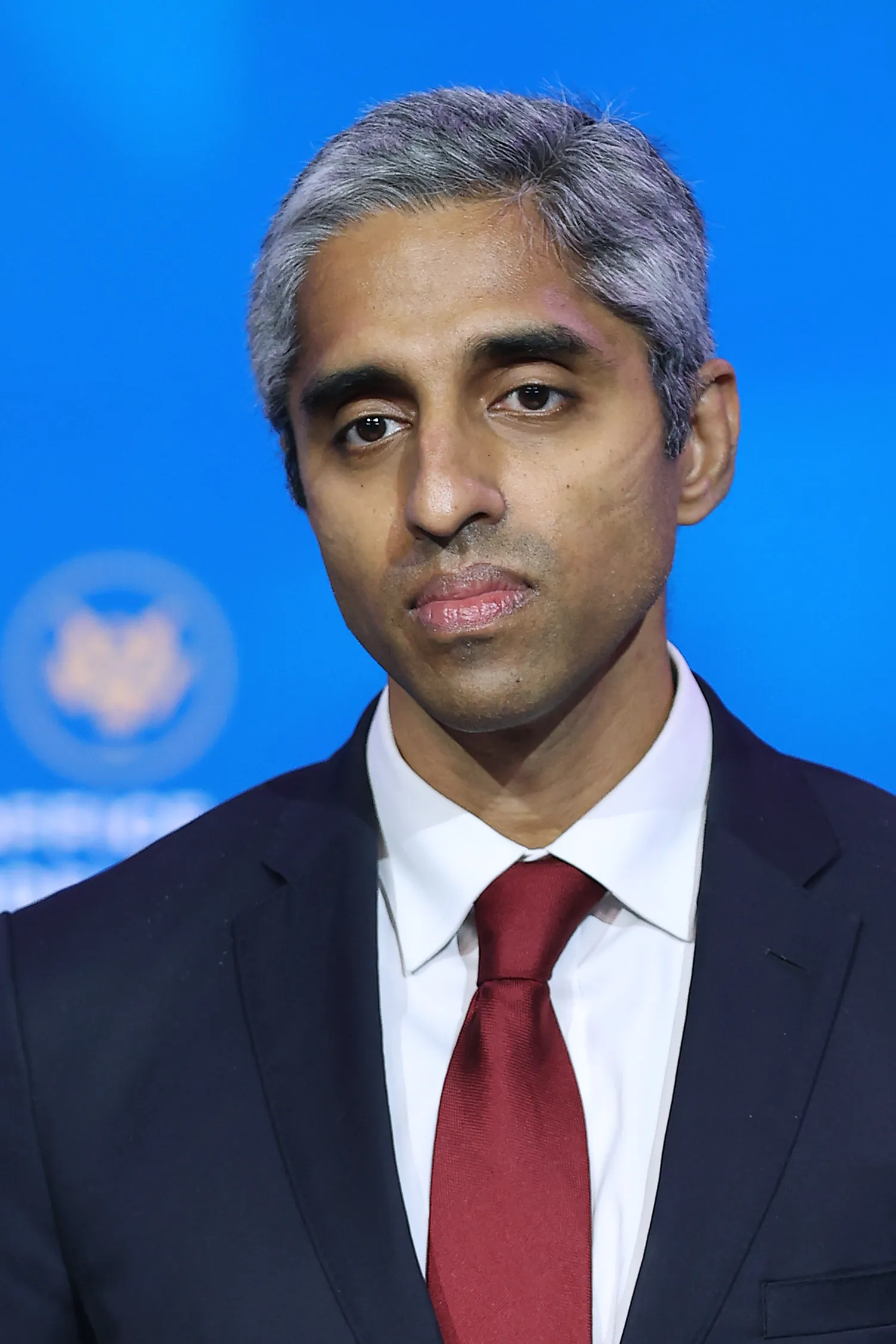
In Thompson’s work coaching executives and helping companies with stress management, Thompson teaches leaders how to use the practice of transcendental meditation, provides self-awareness training and encourages work teams to learn to be more trusting of one another.
He also shared some deceptively simple strategies that a CFO could use if they find themselves overwhelmed by the prospect of delivering disappointing quarterly numbers or other tough tasks. He recommends practicing empathy for those you work with as well as gratitude for children, friends and mentors. And he said it’s important to remember to cherish life — even in the down financial times. “We succeed and fail together always,” he wrote in an email. “Go home and hug your family.”
Editor’s note: If you are having thoughts of self-harm, contact the Suicide & Crisis Lifeline by calling or texting 988 for free and confidential support from trained counselors.











